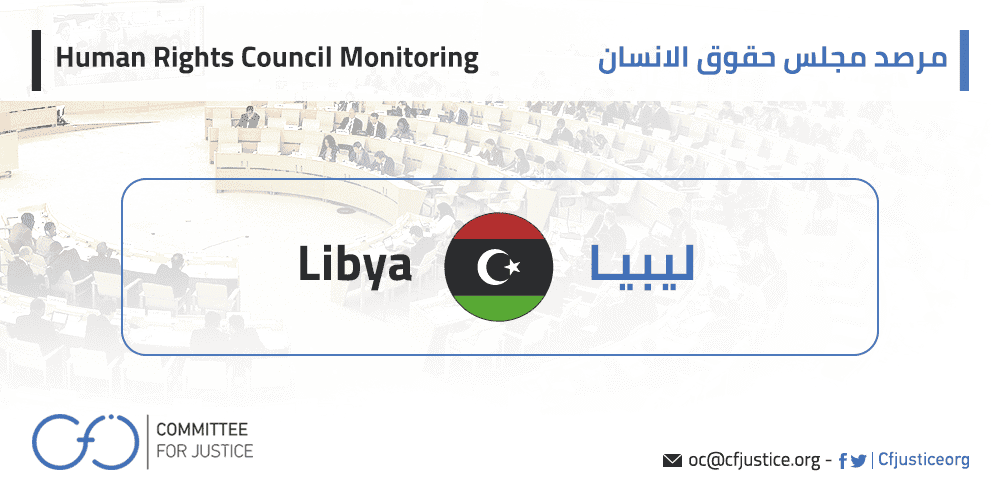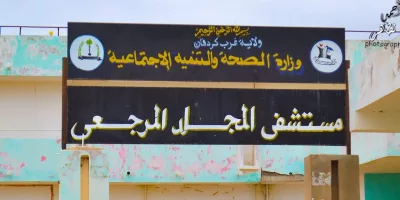News briefing:
Translation and editing by: Committee for Justice
Geneva, April 7, 2021
The United Nations Committee on the Elimination of Discrimination against Women (CEDAW), issued a decision to the individual complaint made by Libyan human rights activist, Magdulein Abaida, regarding the Libyan government’s failure to investigate the violations she was subjected to during her arbitrary and unlawful detention by a militia group affiliated with the government.
Condemnation of the government of Libya
In its findings, CEDAW stated that: “gender-based violence against women includes direct actions taken by or on behalf of States parties, as well as the failure of a government to prevent, investigate and punish acts of violence against women.”
CEDAW affirmed that Libya violated the human rights of the activist working in the field of women’s rights by failing to investigate and prosecute her unlawful arrest and torture by a militia group affiliated with the government.
CEDAW member Nahla Haidar said: “The Libyan government failed to investigate, prosecute, punish and provide reparations for the torture and harassment inflicted on Abaida”.
“We invited Libya to respond to the complaint on four occasions from 2018 to 2020, and we regret that the State party did not respond to our requests,” added Haidar.
Arrest, torture and asylum to Britain
This response came after Abaida filed a complaint to the United Nations after fleeing Libya in 2012, after being harassed, tortured and forced to close down her women’s rights organisation, Hakki (My Right).
On August 9, 2012, while participating in a workshop on women’s rights in the city of Benghazi, Abaida was forced to leave the meeting by several armed men. Later that day, she was arrested and taken from her hotel room by an Islamic militia called the February 17 Martyrs Brigade. “.
Over the next five days, the 25-year-old was arrested in various compounds run by the government and by the February 17 Martyrs Brigade, which at the time was receiving funds from the Libyan Ministry of Defense to carry out law enforcement duties in southern and eastern Libya.
During her detention, Abaida was subjected to harassment, insults and physical beatings. A militia member beat her with his rifle and threatened to kill her. She was also interrogated about her alleged connection to Israel based on her translation work for an Israeli journalist who was making a documentary on women’s rights in Libya. She also appeared before the Deputy Minister of the Interior, who complained to her about the “noise” that she had created in the media.
On August 14, she was released and returned to Tripoli, the country’s capital, but amid messages of hate and death threats from the public, she was forced to give up her work as a founder of an NGO promoting women’s rights. She fled to the UK in September 2012, fearing that she would be killed if detained again, where she was granted asylum. She filed her complaint to the CEDAW in 2017.
Magdulein Abaida was subjected to arbitrary arrest and torture, and was targeted and threatened because of her activism for women’s rights.
This is the first case in which the CEDAW found a violation of the rights of a human rights defender.
The CEDAW called on Libya to ensure accountability and provide compensation to Abaida, and issued wide-ranging general recommendations to Libya to address gender-based violence against women committed by public officials and non-State actors.






